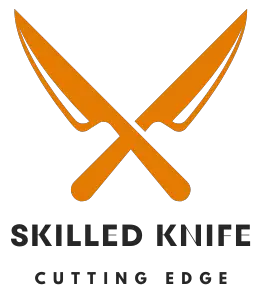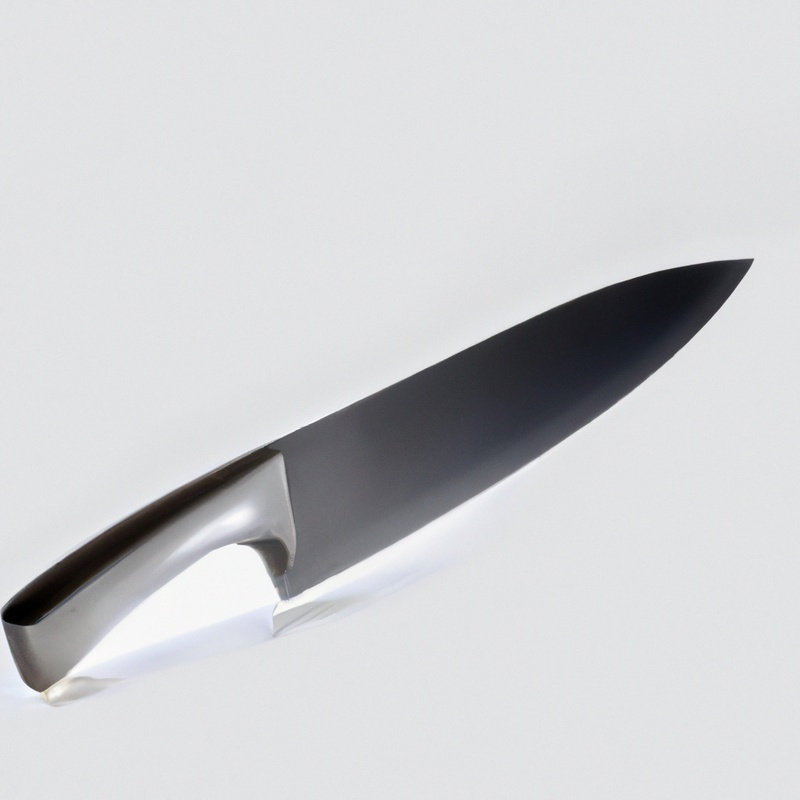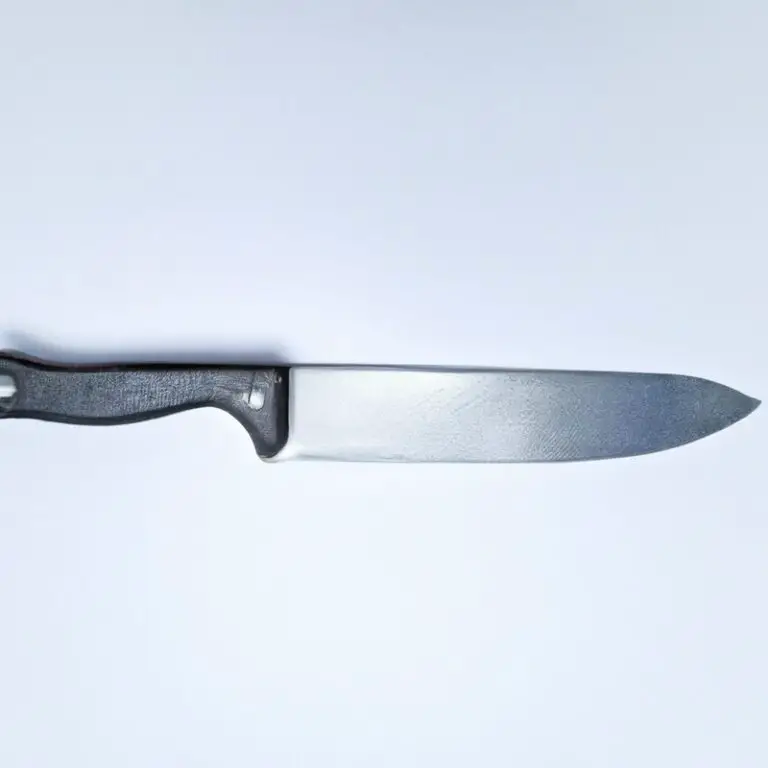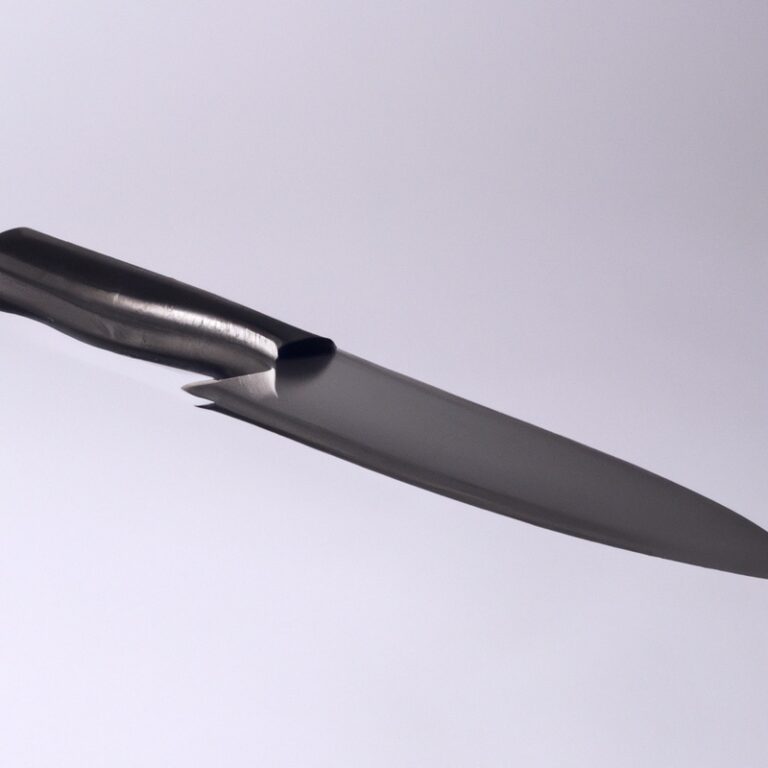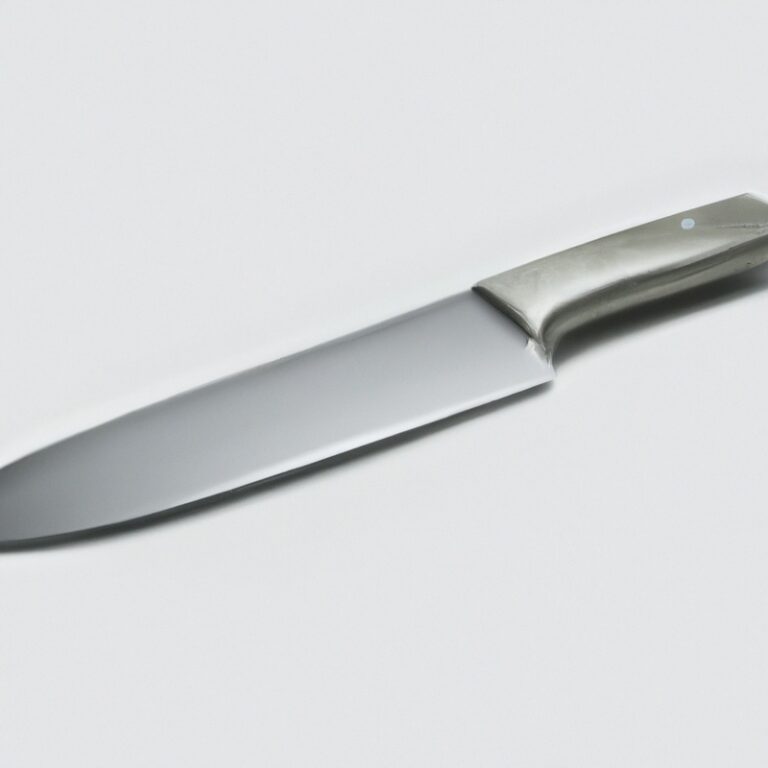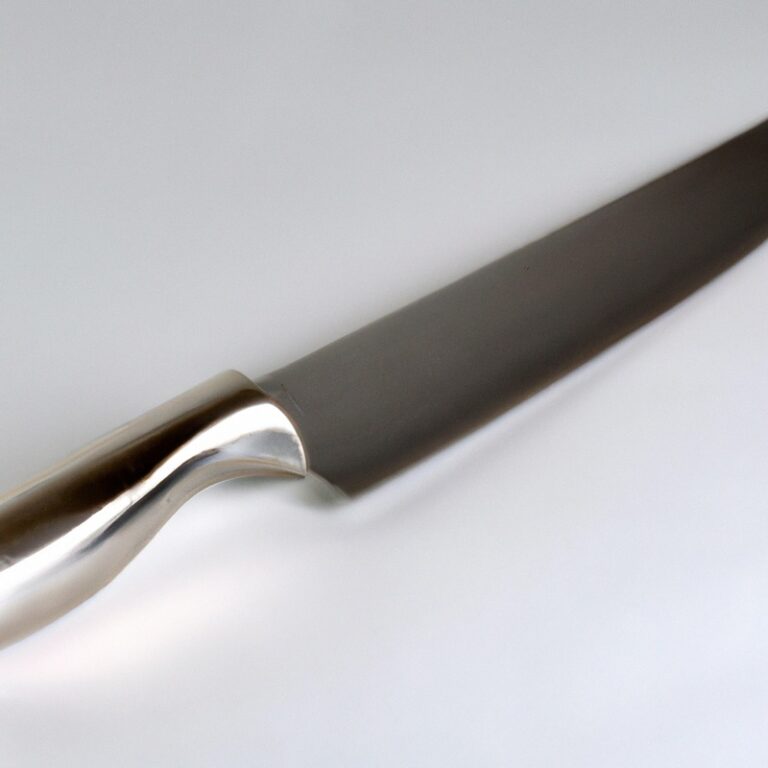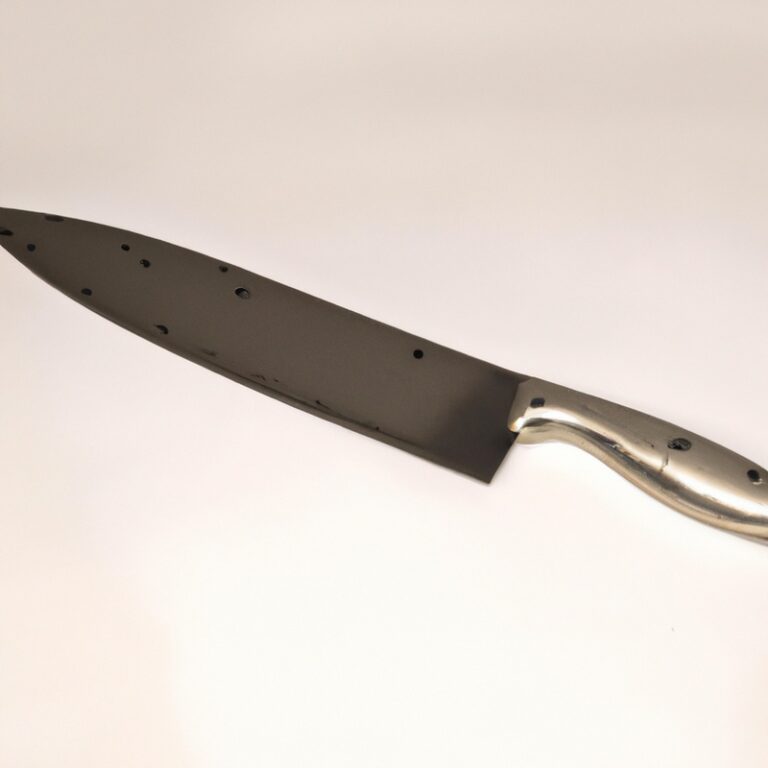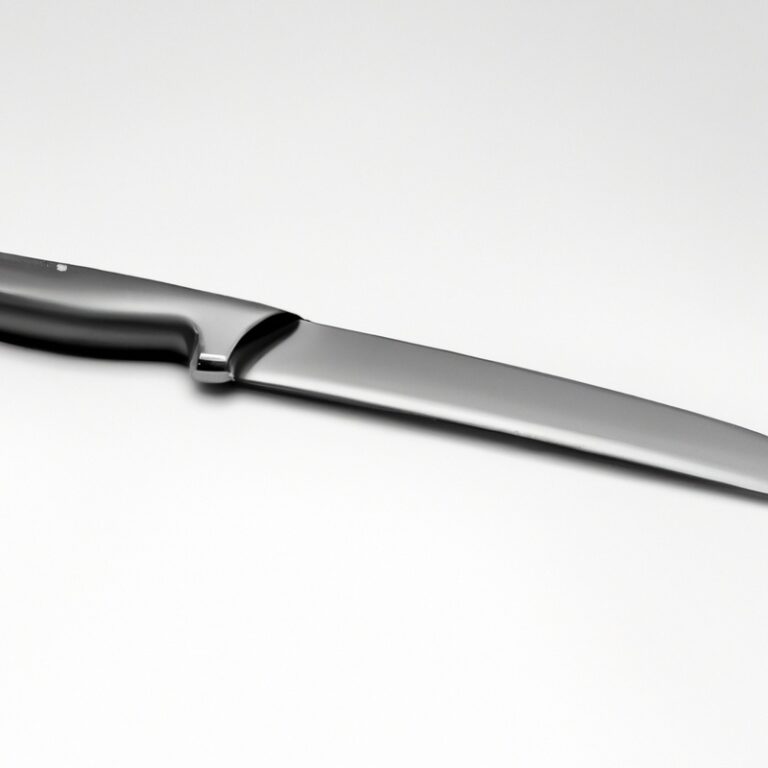Which Knife Steel Is Most Suitable For Hunting Knives?
Key Takeaways:
- Damascus steel offers a great balance of toughness and sharpness for hunting knives.
- Stainless steel is highly resistant to corrosion, making it an ideal choice for hunting knives used in wet or humid environments.
- High carbon steel provides exceptional edge retention, making it a popular option for hunters who prioritize long-lasting sharpness.
- Choosing the right knife steel ultimately depends on your specific hunting needs and preferences.
Are you a cunning hunter looking for the perfect tool to accompany you on your adventures? Well, look no further! When it comes to hunting knives, the choice of steel is crucial.
But with so many options out there, how do you know which one is the best?
Lucky for you, I’ve done the hunting for you (pun intended) and found the steel that will take your hunting game to the next level. In this article, I’ll be exploring the factors to consider when choosing knife steel for hunting knives, comparing popular options, and revealing the ultimate steel for your hunting needs.
Get ready to sharpen your knowledge!
| Knife Steel | Advantages | Disadvantages |
|---|---|---|
| Stainless Steel | Durable and resistant to corrosion | Less edge retention compared to some other steels |
| Carbon Steel | Excellent edge retention and sharpness | Prone to rust and requires regular maintenance |
| High carbon stainless steel | Mix of good corrosion resistance and edge retention | Slightly more expensive |
| Tool Steel | High strength and durability | Might require special treatment for corrosion resistance |
| Damascus Steel | Unique and aesthetically pleasing patterns | Can be costly and difficult to sharpen |
Factors to consider when choosing knife steel for hunting knives
Blade hardness and durability
Blade hardness and durability are important factors to consider when choosing a knife steel for hunting knives.
A harder blade will be less prone to chipping or bending, and will retain its sharpness longer.
Additionally, a durable blade will be able to withstand the rigors of hunting and outdoor use without the need for frequent repairs or replacements.
When selecting a knife steel, look for options with high Rockwell hardness ratings, such as S30V or D2 tool steel, for optimal blade hardness and durability.
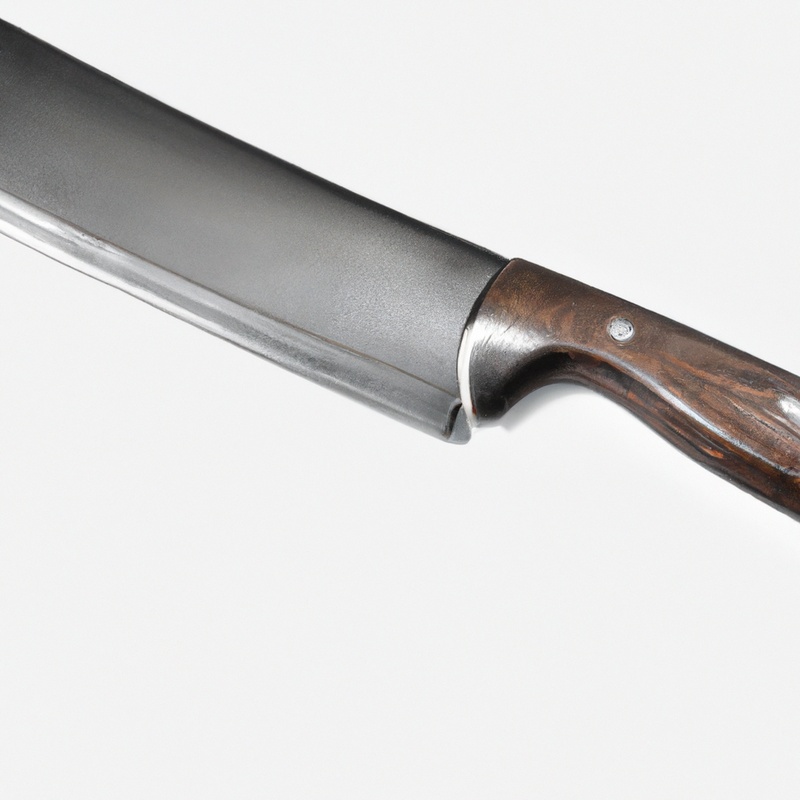
Corrosion resistance
Corrosion resistance is an important factor to consider when choosing a steel for hunting knives. A knife that is resistant to corrosion will be less likely to rust, which means it can withstand exposure to moisture and harsh environments without deteriorating.
Stainless steel alloys such as 440, VG-10, and S30V are known for their excellent corrosion resistance.
Carbon steels like 1095 may not be as corrosion-resistant but can still be effective if properly cared for. Regular cleaning, drying, and oiling are essential for maintaining the corrosion resistance of your hunting knife.
Edge retention
When it comes to the performance of a hunting knife, edge retention is a crucial factor to consider.
Edge retention refers to how well the knife’s edge retains its sharpness during use.
You want a knife steel that can maintain a sharp edge for a prolonged period without frequent sharpening.
High-quality stainless steel like VG-10 and S30V are known for their excellent edge retention.
These steels are highly wear-resistant and can withstand the rigors of hunting tasks.
Additionally, some high-carbon steels like D2 tool steel also offer good edge retention but may require more care to prevent corrosion.
Sharpenability
Sharpenability is an important factor to consider when choosing a knife steel for hunting knives.
It refers to how easily a blade can be sharpened and maintained.
Some steels, like stainless steel, may be more resistant to corrosion but can be harder to sharpen.
On the other hand, certain carbon steels are known for their ease of sharpening.
Ultimately, the sharpenability of a knife steel depends on the individual’s skill and experience in sharpening blades.
It’s worth considering your own sharpening abilities and preferences before selecting a knife steel for your hunting knife.
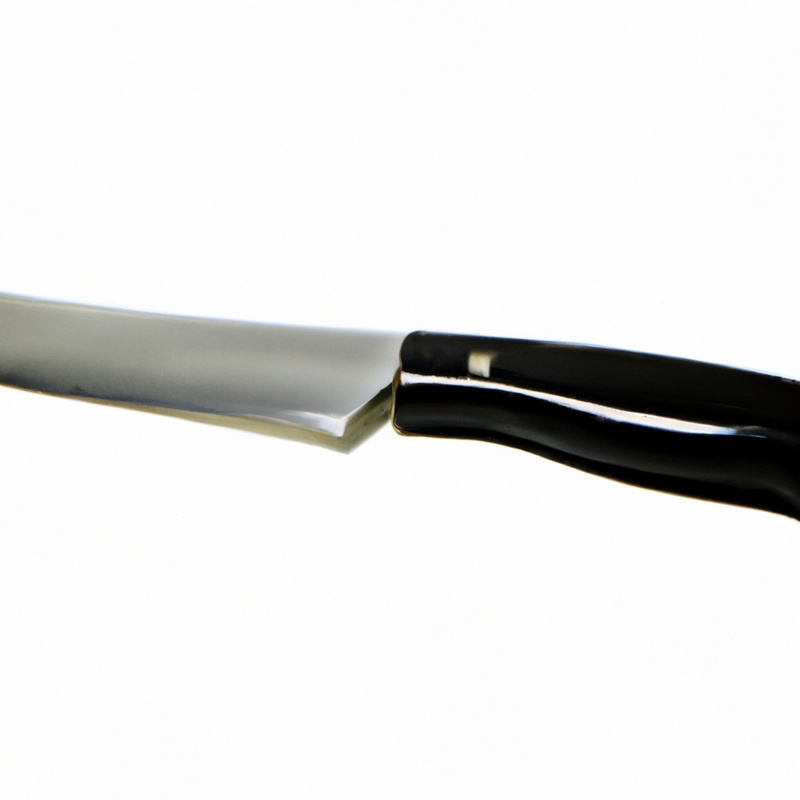
Common knife steels used in hunting knives
440 stainless steel
440 stainless steel is a popular choice for hunting knives due to its excellent corrosion resistance. It is a high-carbon stainless steel that offers good strength and durability. The steel is tough and can withstand heavy use without chipping or breaking easily. Additionally, 440 stainless steel is relatively easy to sharpen, making it a practical choice for hunters who value sharpness. However, it is important to note that 440 stainless steel may not have the same edge retention as some other knife steels, so frequent resharpening may be necessary. Overall, 440 stainless steel is a reliable option for hunting knives, especially for those who prioritize corrosion resistance.
VG-10 stainless steel
VG-10 stainless steel is a popular choice for hunting knives.
It is known for its excellent combination of hardness, durability, and corrosion resistance.
VG-10 steel has a high carbon content, which contributes to its exceptional edge retention.
It is also relatively easy to sharpen, making it convenient for field use.
Whether you are skinning game or performing intricate tasks, VG-10 stainless steel can handle the job effectively.
Its performance and reliability make it a top choice for many hunters and outdoor enthusiasts.
S30V stainless steel
S30V stainless steel is a popular choice for hunting knives.
It is known for its excellent edge retention and high corrosion resistance.
The steel is also quite durable, making it suitable for tough tasks in the field.
While it can be more challenging to sharpen compared to other steels, it is still manageable with the right tools and techniques.
Overall, S30V stainless steel offers a good balance of performance and reliability for hunting knives.
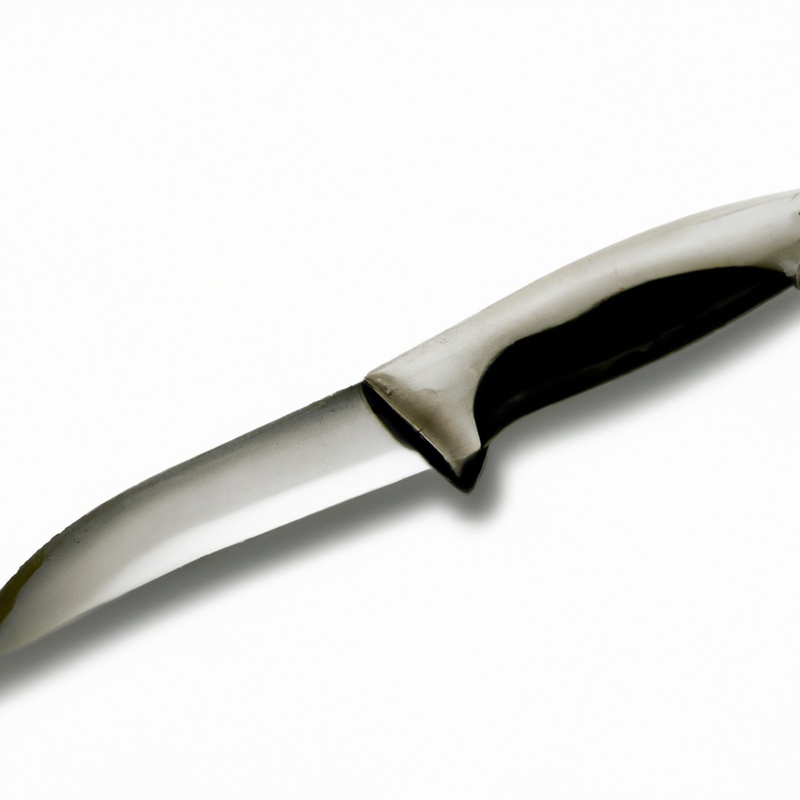
1095 carbon steel
1095 carbon steel is a popular choice for hunting knives due to its excellent durability and edge retention. It is a high-carbon steel that is easy to sharpen and holds a sharp edge well. However, it is not as corrosion resistant as stainless steel, so it requires proper care and maintenance to prevent rusting. 1095 carbon steel is a reliable option for hunters who prioritize sharpness and toughness in their knives.
D2 tool steel
D2 tool steel is a popular choice for hunting knives due to its excellent edge retention and durability. It is a high-carbon, high-chromium steel that offers great wear and abrasion resistance.
The steel is also known for its toughness, making it highly resistant to chipping and breaking, even under heavy use.
Additionally, D2 tool steel can be easily sharpened, allowing hunters to maintain a sharp edge in the field. Its corrosion resistance, however, is not as high as stainless steel options, so proper care and maintenance, such as regular cleaning and oiling, are important to prevent rust.
Comparing the performance of different knife steels
Blade hardness and durability comparison
When comparing blade hardness and durability of different knife steels, it’s important to consider their Rockwell Hardness Scale rating.
Higher hardness ratings (typically above 58 HRC) indicate a more durable blade that is less prone to chipping or bending.
Steels like D2 and S30V are known for their high hardness and excellent durability.
On the other hand, carbon steels like 1095, while slightly softer, offer great toughness and are easier to sharpen in the field.
Ultimately, the choice depends on your specific needs and preferences as a hunter.
Corrosion resistance comparison
When comparing the corrosion resistance of different knife steels used in hunting knives, it’s important to consider how well they can withstand exposure to moisture and other harsh conditions. Stainless steels like VG-10 and S30V are known for their excellent corrosion resistance, making them a popular choice.
440 stainless steel also offers good corrosion resistance, while carbon steels like 1095 may require more maintenance to prevent rust.
D2 tool steel falls somewhere in between, providing moderate corrosion resistance. Remember to consider the environment you’ll be using your knife in to ensure you choose a steel with the appropriate corrosion resistance.
Edge retention comparison
When comparing the edge retention of different knife steels for hunting knives, it’s important to consider their composition and hardness.
Steels like D2 and S30V are known for their excellent edge retention, meaning they retain sharpness for longer periods of time, which is crucial for hunting tasks.
On the other hand, 440 stainless steel and VG-10 stainless steel offer good edge retention as well, but may require more frequent sharpening.
Ultimately, the best choice depends on your specific needs and preferences.
Sharpenability comparison
When comparing the sharpenability of different knife steels, it’s important to consider the ease and effectiveness of sharpening.
Some steels may require more effort and time to achieve a sharp edge, while others can be sharpened quickly and easily.
- stainless steel: Relatively easy to sharpen, but may not hold an edge as well as other steels.
- VG-10 stainless steel: Known for its ease of sharpening and ability to maintain a sharp edge.
- S30V stainless steel: Can be more challenging to sharpen due to its hardness, but it retains an edge very well.
- carbon steel: Requires regular maintenance and sharpening, but can achieve a razor-sharp edge.
- D2 tool steel: Moderately difficult to sharpen, but holds an edge for a long time.
Consider your sharpening skills and the time you’re willing to invest in maintaining your hunting knife when choosing a steel with the right sharpenability for you.
Best knife steel for hunting knives
Depending on intended use and personal preferences
When choosing the best knife steel for your hunting knife, it’s important to consider your intended use and personal preferences.
Different steels have varying properties that can impact performance.
If you prioritize blade hardness and durability, a high-carbon steel like 1095 or D2 may be ideal.
For enhanced corrosion resistance, stainless steels like 440 or VG-10 are good options.
If edge retention is your priority, S30V is a popular choice.
Consider your needs and preferences to find the perfect knife steel for your hunting adventures.
Recommendations for different hunting scenarios
In different hunting scenarios, you may have different requirements for your hunting knife steel. Here are some recommendations:
- General Purpose Hunting: For an all-around hunting knife, go for a stainless steel like VG-10 or S30V. These steels offer a good balance of durability, corrosion resistance, and edge retention.
- Big Game Hunting: When dealing with larger animals, you want a strong and tough steel. Consider 1095 carbon steel or D2 tool steel. They offer excellent edge retention and can handle heavy-duty tasks.
- Small Game Hunting: For precision work on smaller animals, a steel with superior sharpness is important. Look for high-carbon stainless steels like VG-10 or S30V. They will give you a razor-sharp edge.
- Bushcraft and Survival: If you need a versatile knife for bushcraft and survival tasks, D2 tool steel is an excellent choice. It excels in edge retention and durability, making it ideal for heavy use in various environments.
Remember, choosing the right knife steel depends on your specific needs and preferences. Consider the type of hunting you will be doing and the tasks you need to accomplish when making your decision.
Maintaining and caring for your hunting knife steel
Cleaning and oiling
Cleaning and oiling your hunting knife is essential for maintaining its performance and longevity. To clean the blade, simply rinse it with warm water and mild soap, carefully removing any dirt or debris.
Avoid using harsh chemicals or scrubbing too vigorously, as this can damage the steel.
After cleaning, dry the knife thoroughly to prevent rust. Next, apply a light coat of oil to the blade to protect against corrosion.
You can use specialized knife oil or even mineral oil as a substitute.
Make sure to evenly distribute the oil and wipe off any excess. Regular cleaning and oiling will keep your hunting knife in great condition, ready for your next adventure.
Sharpening techniques
When it comes to sharpening your hunting knife, there are a few techniques you can use to ensure a sharp and effective blade. One common method is using a sharpening stone or whetstone.
Gently slide the blade across the stone at a consistent angle, applying light pressure.
Another option is using a honing rod or sharpening steel to straighten the blade’s edge. Simply swipe the blade along the rod, moving from the base to the tip.
Electric knife sharpeners are also available, providing a convenient and efficient way to sharpen your blade.
Remember to follow the manufacturer’s instructions and take safety precautions when using any sharpening method.
Final Verdict
When choosing knife steel for hunting knives, there are several factors to consider such as blade hardness, corrosion resistance, edge retention, and sharpenability.
While there are various knife steels available, some common choices for hunting knives include 440 stainless steel, VG-10 stainless steel, S30V stainless steel, 1095 carbon steel, and D2 tool steel.
Each steel has its own performance characteristics and it depends on your intended use and personal preferences.
Proper maintenance and care, including regular cleaning, oiling, and sharpening, are crucial for prolonging the lifespan of your hunting knife.
Ultimately, the best knife steel for hunting knives is subjective and should be determined by your specific needs.
